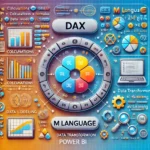In the world of web automation and web scraping, developers often find themselves comparing various tools and frameworks to choose the best fit for their projects. Two prominent contenders in this domain are Selenium with Python bindings and Scrapy. Each tool serves a distinct purpose and comes with its own set of features. In this blog post, we will conduct a thorough comparison of Selenium Python vs. Scrapy, highlighting their strengths and use cases to help you make an informed decision for your web automation and web scraping needs.
1. Selenium Python: Empowering Web Automation
Overview of Selenium Python: Selenium is an open-source web testing framework that supports multiple programming languages, including Python. Selenium with Python bindings allows developers to write powerful web automation scripts, making it ideal for tasks like end-to-end testing, web application testing, and browser automation. It simulates user interactions, interacts with web elements, and navigates through web pages, providing a comprehensive solution for automating web browsers.
Strengths of Selenium Python
a. Cross-Browser Compatibility: One of Selenium Python’s key strengths is its ability to work seamlessly across various web browsers, such as Chrome, Firefox, Edge, Safari, and more. This cross-browser support ensures that your web automation scripts function consistently across different platforms.
b. Dynamic Web Interaction: Selenium Python excels at handling dynamic web pages that heavily rely on JavaScript and AJAX. It can interact with complex web elements like dropdowns, pop-ups, and iframes, making it well-suited for testing and automating modern web applications.
c. Versatile Use Cases: Beyond web scraping, Selenium Python is a powerful tool for automating a wide range of tasks, including form submissions, page navigation, and website validation.
https://synapsefabric.com/2023/07/28/selenium-python-vs-beautifulsoup-a-duel-of-web-automation-and-web-scraping/
2. Scrapy: Mastering the Art of Web Scraping
Overview of Scrapy: Scrapy is a robust and fast web scraping framework written in Python. Unlike Selenium, Scrapy is solely focused on web scraping and data extraction from websites. It provides a high-level and convenient API for crawling and scraping websites, allowing developers to navigate through website structures and extract specific data efficiently.
Strengths of Scrapy
a. High-Performance Scraping: Scrapy is designed for high performance and can handle large-scale web scraping projects with ease. Its asynchronous nature enables concurrent data extraction, making it an efficient choice for scraping vast amounts of data.
b. Built-in Support for Data Extraction: Scrapy simplifies the data extraction process with its built-in support for XPath and CSS selectors. Developers can easily locate and extract desired data from web pages using these powerful selectors.
c. Extensibility and Middleware Support: Scrapy’s architecture allows developers to create custom extensions and middlewares, enabling them to fine-tune the scraping process and handle various scenarios efficiently.
https://synapsefabric.com/2023/07/28/selenium-python-vs-playwright-a-battle-of-modern-web-automation-tools/
Making the Choice: Selenium Python Vs. Scrapy
Choose Selenium Python If:
- You need to automate web browsers for end-to-end testing or web application testing.
- Cross-browser compatibility is essential for your web automation tasks.
- Your web application relies on dynamic elements, JavaScript, or AJAX.
Choose Scrapy If:
- Your primary goal is web scraping and data extraction from websites.
- High-performance scraping and large-scale data extraction are crucial to your project.
- You prefer a specialized and focused framework for web scraping tasks.
The choice between Selenium Python and Scrapy hinges on the specific requirements of your project. Selenium Python is an excellent choice for web automation and simulating user interactions with cross-browser compatibility and dynamic web interaction. On the other hand, Scrapy is a powerful web scraping framework, optimized for high-performance data extraction and providing convenient built-in support for data extraction techniques.
By understanding the strengths and use cases of both Selenium Python and Scrapy, you can make an informed decision that aligns with your project goals, ensuring successful web automation or web scraping endeavors. Whether you’re automating web browsers or extracting valuable data from websites, these tools will undoubtedly boost your productivity and streamline your web-related tasks.






